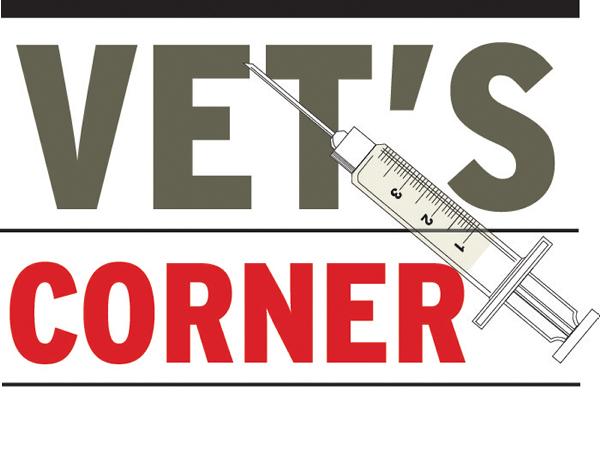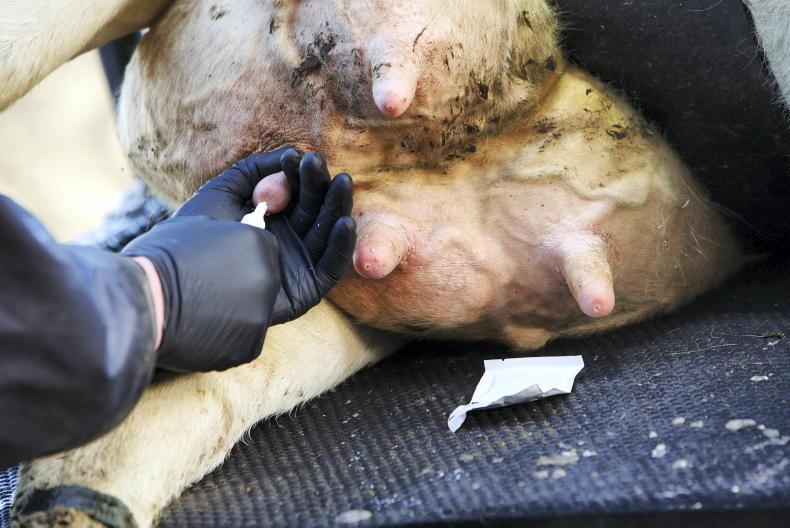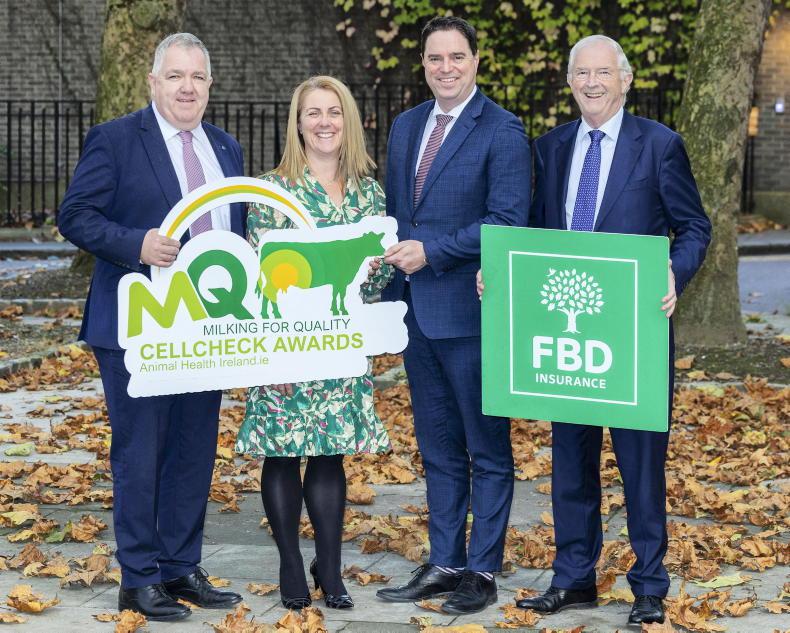I tended to a cow with mastitis recently for a dairy farmer client of our practice. The cow had been treated during the summer and this was her second time with clinical mastitis.
Before treating the cow, we took a sample to test in order to determine which bacteria was involved. The bug which was causing the problem turned out to be Staphylococcus aureus.
This can be one of the most difficult causes of mastitis to treat, particularly during the milking period. Due to the fact that this was a young cow and the farmer wanted to give her the best chance of recovery, we made a decision to treat her with antibiotics, dry her off and treat her with intramammary dry cow therapy.
Following a discussion with our client, it turned out that recent milk recordings had shown an increase in somatic cell count.
We subsequently took samples for testing and discovered that many of the cows with high somatic cell count also had sub-clinical (non-visible) infections with Staphylococcus aureus.
We then checked back on which of these cows had elevated cell counts or clinical mastitis in the past. Staph aureus becomes increasingly hard to cure every time that it recurs.
Two older cows which were repeat offenders were dried off and segregated for culling. Some less chronic cases were treated with antibiotics, dry cow therapy and dried off.
One or two have not yet been dried off, but have been clearly marked, are being milked at the end of milking and will be dried off and treated with dry cow therapy at drying off.
The choice of dry cow therapy on this farm was able to be selected specifically for the farm based on the result of culture and antibiotic sensitivity testing.
While the use of milk recording data, laboratory testing and selective treatment are useful tools in the management of mastitis cases on the farm and the selection of appropriate treatments, the real aim is to prevent mastitis cases occurring as much as possible.
In order to do this, we are designing a mastitis control programme on the farm based on many of the key principles set out by Animal Health Ireland in their CellCheck programme.
John Gilmore, Emlagh Lodge Veterinary Centre, and FarmLab Diagnostics, Elphin, Co Roscommon. www.farmlab.ie
I tended to a cow with mastitis recently for a dairy farmer client of our practice. The cow had been treated during the summer and this was her second time with clinical mastitis.
Before treating the cow, we took a sample to test in order to determine which bacteria was involved. The bug which was causing the problem turned out to be Staphylococcus aureus.
This can be one of the most difficult causes of mastitis to treat, particularly during the milking period. Due to the fact that this was a young cow and the farmer wanted to give her the best chance of recovery, we made a decision to treat her with antibiotics, dry her off and treat her with intramammary dry cow therapy.
Following a discussion with our client, it turned out that recent milk recordings had shown an increase in somatic cell count.
We subsequently took samples for testing and discovered that many of the cows with high somatic cell count also had sub-clinical (non-visible) infections with Staphylococcus aureus.
We then checked back on which of these cows had elevated cell counts or clinical mastitis in the past. Staph aureus becomes increasingly hard to cure every time that it recurs.
Two older cows which were repeat offenders were dried off and segregated for culling. Some less chronic cases were treated with antibiotics, dry cow therapy and dried off.
One or two have not yet been dried off, but have been clearly marked, are being milked at the end of milking and will be dried off and treated with dry cow therapy at drying off.
The choice of dry cow therapy on this farm was able to be selected specifically for the farm based on the result of culture and antibiotic sensitivity testing.
While the use of milk recording data, laboratory testing and selective treatment are useful tools in the management of mastitis cases on the farm and the selection of appropriate treatments, the real aim is to prevent mastitis cases occurring as much as possible.
In order to do this, we are designing a mastitis control programme on the farm based on many of the key principles set out by Animal Health Ireland in their CellCheck programme.
John Gilmore, Emlagh Lodge Veterinary Centre, and FarmLab Diagnostics, Elphin, Co Roscommon. www.farmlab.ie










SHARING OPTIONS